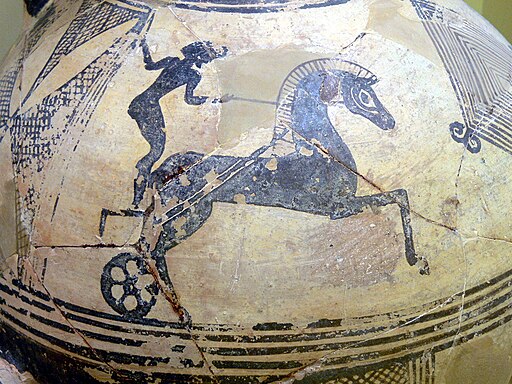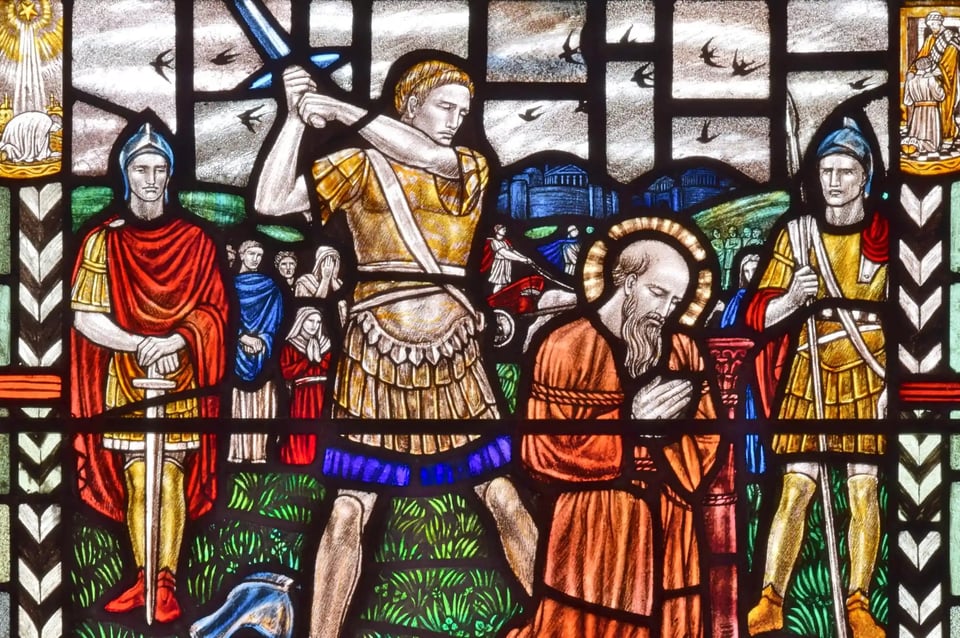Fighting the Good Fight
Fighting the Good Fight

Greetings! And my thanks for subscribing to this newsletter. You may have forgotten that you did because of the long silence on my side. Well, after a fallow period, I will try now to follow a simpler formula: an etymology, or origin account, followed by a brief reflection with a short concluding list of links. Here goes …
One of the most frequently repeated phrases of St. Paul comes from his Second Letter to Timothy. Anticipating his imminent martyrdom, Paul remarks:
I am already on the point of being sacrificed; the time of my departure has come. I have fought the good fight, I have finished the race, I have kept the faith. (4:6–7, RSV)
In Greek:
Ἐγὼ … ἢδη σπένδομαι, καὶ ὁ καιρὸς τῆς ἀναλύσεως μου ἐφέστηκεν. τὸν καλὸν ἀγῶνα ἠγώνισμαι, τὸν δρόμον τετέλεκα, τὴν πίστιν τετήρηκα·
"I have fought the good fight." Paul used the same phrase in his First Letter to Timothy—urging him to "fight the good fight of the faith" (6:12)—and a closely similar phrase earlier in that same letter—"This charge I commit to you, Timothy, my son, in accordance with the prophetic utterances which pointed to you, that inspired by them you may wage the good warfare." (1:18)
Fighting the good fight is now used in a variety of contexts to mean: pursue what is right in the face of adversity—often without recognition or awareness of its Pauline origin. Sundered from its context, the phrase seems to uphold fierce, even combative resistance to injustice. It makes us think of a fight.
But the word Paul used for "fight" was ἀγών (agōn)—an athletic competition for a prize, usually held before a large crowd, such as the ancient Olympic games. The rest of Paul's statement makes the athletic metaphor clear—"I have finished the race."
What would certainly have struck any person familiar with such games, is the shocking contrast between the customary attitude of such a contestant and Paul's present state, that of a prisoner awaiting execution. The successful athlete in a typical agōn embodies the distinctive values and aspirations, and so receives the special accolades, of the community he represents. Paul, imprisoned, bides his time until he meets the executioner's sword—forsaken yet still, somehow, triumphant.
Paul thus invites Timothy (and all who read or hear his letter) to reconsider the very idea of an agōn—and by implication, all of our standards of value, victory, and success.
We should note in particular that, while Paul does employ a metaphor of athletic competition, he subordinates that image to ideas of "ritual sacrifice" and the "resolution" of death.
The word translated "sacrifice" is σπένδομαι (spendomai)—literally, "to pour a libation." Paul's execution at the hands of Roman authorities is as if the pouring out of wine in an act of solemn worship.
This idea of being poured out is present, too, in the word translated "departure"—ἀνάλυσις (analysis), a dissolving of a thing into its component parts which causes its destruction. For us mortals, our analysis is our death—a dissolution, an undoing, but also—another meaning of the Greek word—our release.
A final important element in Paul's transvaluation of the Greek agōn is the notion of "proper time", which is the meaning of the word καιρός (kairos). "The time [kairos] of my departure has come." This is not simply the particular moment in a succession of events when Paul happens to die. It is the proper time—the due season—in the progressive unfolding of an inscrutable yet divinely ordained providential economy.
Paul's fight thus involves patience, readiness, attention—a will to endure until the moment of ripeness and presence of mind to see it clearly when it comes.
All of this deserves bearing in mind whenever we, like Paul, endeavor to fight the good fight.

Links
- My friend and colleague Christopher Shannon wrote this piece a couple years ago—a reflection on the harmonizing of the universal and particular in the enduring cult of Our Lady of Guadalupe—whose feast is today, December 12.
- You can read more about the events surrounding the apparitions of Guadalupe, and of the Church's entire pilgrimage in the New World, in Chris's latest book American Pilgrimage.
- Leah Libresco wrote an insightful post about toxic excellence around this time last year.
- While readily taking her main point, I attempted a little defense of competitive play in this post.
- This lecture from Alan Jacobs helped me think about education as a form of play, and introduced me to the book Homo Ludens by Johan Huizinga. If the topic of Professor Jacobs's lecture captures your interest, you might like his book, on similar themes, How to Think.
- Finally, my brother Jason writes a Substack which I highly recommend. A couple of my favorite posts—on travel as self-revelation and on sleepless nights at Sleeping Bear Dunes.